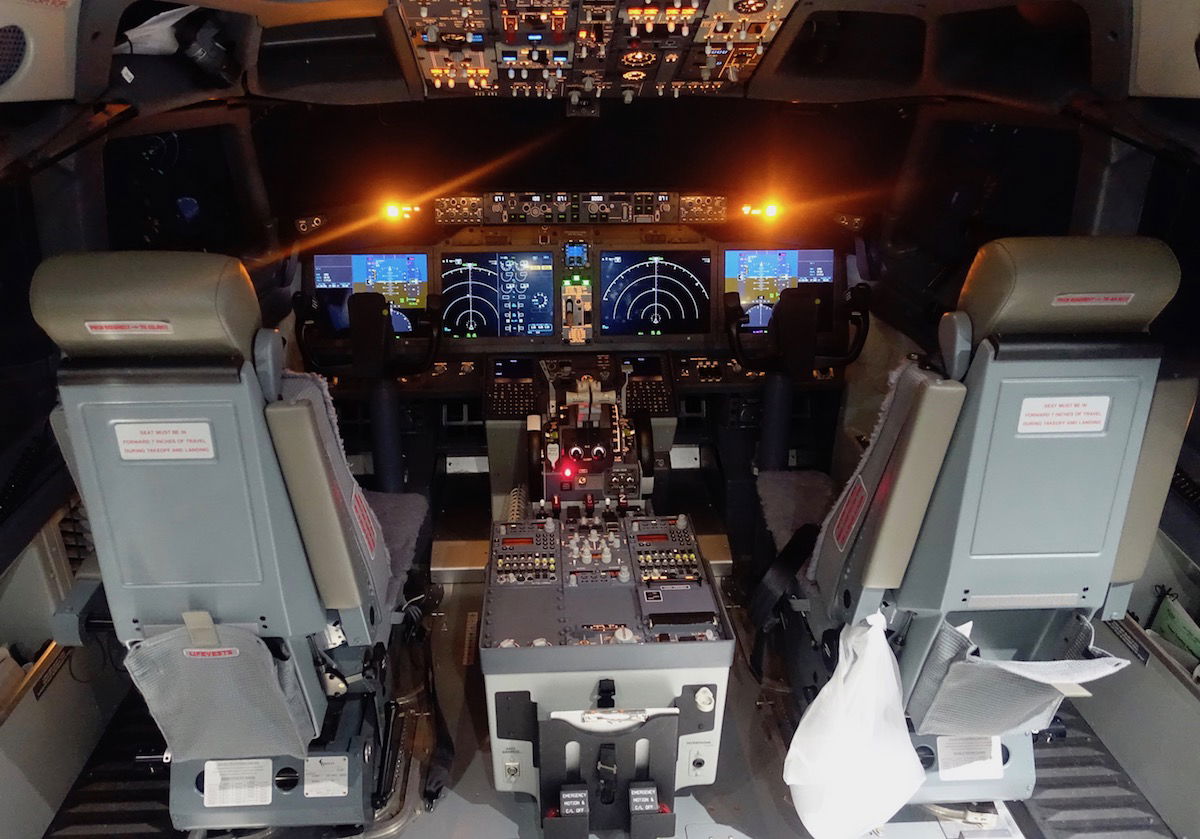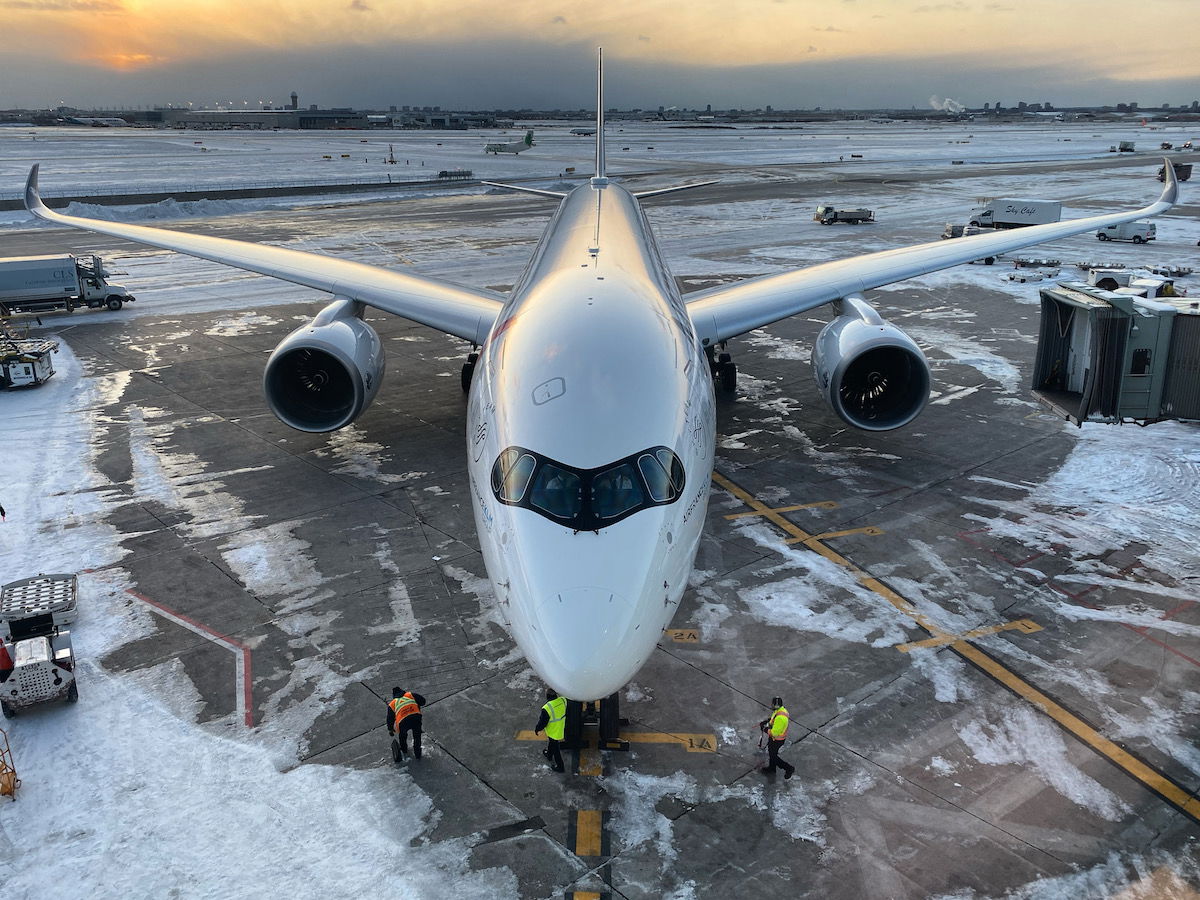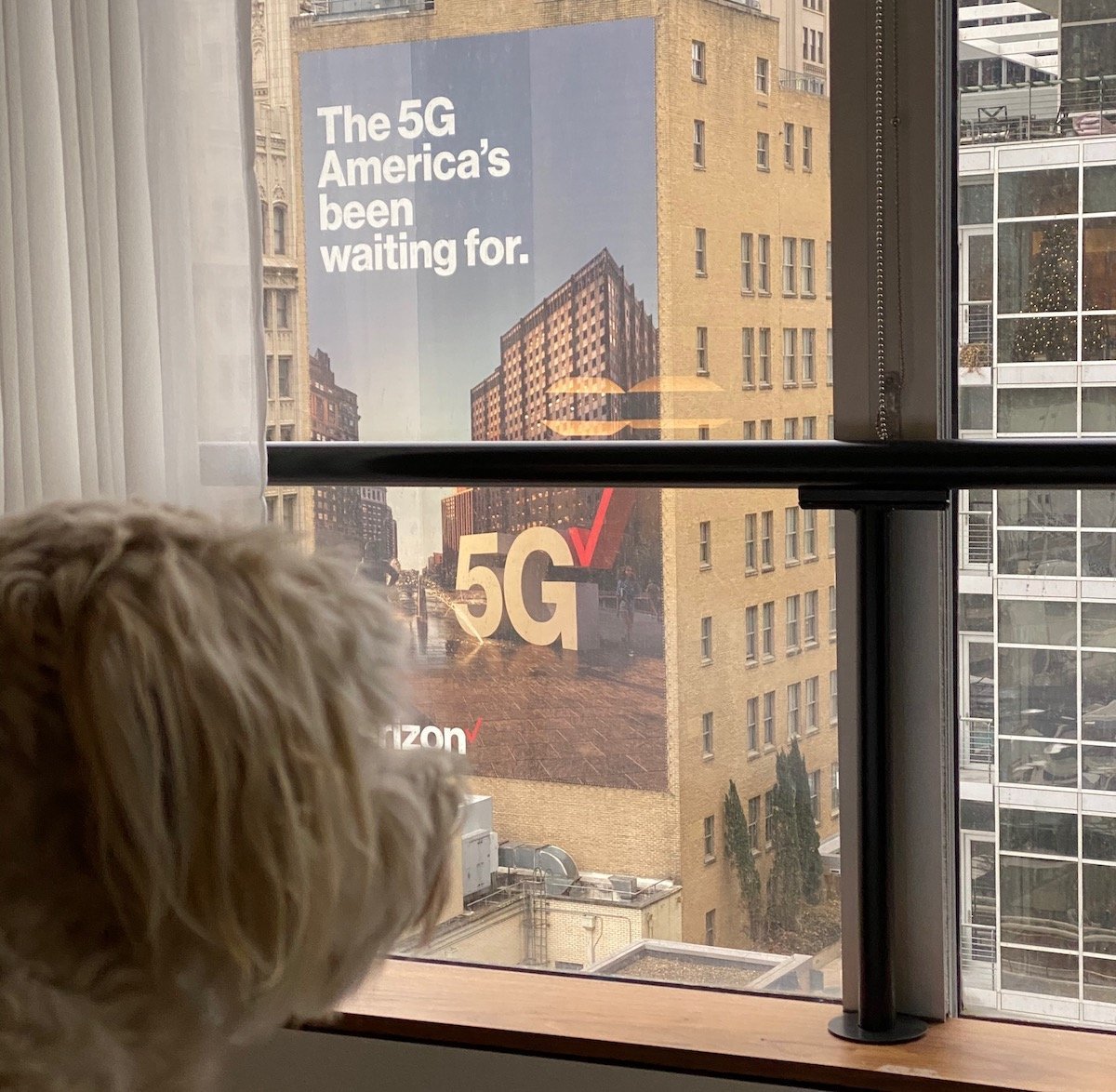AT&T and Verizon plan to deploy their new 5G technology in many markets across the United States as of Wednesday, January 5, 2022, and this will potentially have some implications for aviation. There’s now a bit of a cat fight between the FAA, FCC, and wireless communication companies.
In this post:
Regulators ask for delay in 5G deployment
On Friday, December 31, 2021, US Transportation Secretary Pete Buttigieg, and FAA Administrator Steve Dickson, wrote a letter to AT&T and Verizon, asking them to delay the introduction of 5G wireless service by no more than two weeks due to aviation safety concerns.
The aviation industry has raised concern about the potential interference of 5G with aircraft electronics, which could disrupt flights. Essentially the new C-Band technology used for 5G transmits in the 3700-3800 MHz range, which is close to the 4200-4400 MHz range used by aircraft radio altimeters.
The FAA’s request was for an across the board delay of up to two weeks, and then there would be a longer delay around “priority airports,” described as areas “where a buffer zone would permit aviation operations to continue safely while the FAA completes its assessments of the interference potential.” Even for the areas around these “priority airports,” the plan would be for 5G to be activated by March 31, 2022.
Regarding 5G deployment around airports, airline trade group Airlines for America has said that “the potential damage to the airline industry alone is staggering,” and the president of the Association of Flight Attendants-CWA has suggested that the deployment of 5G will cause the traveling public to be used as “guinea pigs.”

AT&T and Verizon reject request for delayed 5G
On Sunday, the CEOs of AT&T and Verizon responded to the letter from Buttigieg and Dickson, rejecting the request to postpone the introduction of 5G across the board. However, they said they’d be willing to accept some temporary measures over the next six months to limit service around certain airports.
The response letter argues that it would harm consumers to delay the implementation of 5G:
“Agreeing to your proposal would not only be an unprecedented and unwarranted circumvention of the due process and checks and balances carefully crafted in the structure of our democracy, but an irresponsible abdication of the operating control required to deploy world-class and globally competitive communications networks that are every bit as essential to our country’s economic vitality, public safety and national interests as the airline industry.”
The 5G technology is already deployed in over 40 countries, including France. The letter goes on to make that point:
“The laws of physics are the same in the United States and France. If U.S. airlines are permitted to operate flights every day in France, then the same operating conditions should allow them to do so in the United States.”
For what it’s worth, the FAA claims that France uses lower power levels for 5G than those authorized in the United States.

Not all regulators are on the same page
On the surface it of course sounds completely ridiculous for private companies to tell government regulators “nah, respectfully we’ll just do what we want despite your safety concerns, go pound sand.” But it’s worth noting that the issue is a bit more complex than that.
Wireless communication companies are ordinarily overseen by the FCC, and FCC Commissioner Brendan Carr disagrees with other regulators. Carr responded to the letter from Buttigieg and Dickson, calling the request “highly irregular,” and one that “deviates from the clear, statutory process specified by Congress for regulating provisions of wireless service.” The letter goes on to say the following:
“Your request for delay is not backed up by the science, engineering, or law. Indeed, your arguments are predicated on the claim that there are unresolved concerns about harmful interference from C-Band operations into radio altimeters. This is not correct. The FCC — the expert agency charged by Congress with addressing precisely those types of concerns about harmful interference — resolved these issues all the way back in March 2020 in the 258-page decision references above.”
So yeah, this is kind of complicated:
- The FCC, which oversees wireless communication companies, claims there are no safety concerns
- The FAA, which oversees aviation, claims there are potential safety concerns
It goes without saying that I don’t have the expertise to have a strong opinion here. I will say that aviation is so incredibly safe because the industry constantly errs on the side of caution, and that’s a good thing. So when regulators and airlines express concerns, I’m inclined to believe them. On the other hand, this technology has already been deployed in lots of other countries without issue, so…

Bottom line
5G technology is supposed to be deployed by AT&T and Verizon in many markets as of this Wednesday. Regulators have requested a delay of up to two weeks across the board, plus further delays around certain airports. AT&T and Verizon have rejected the request for a blanket delay, but are willing to cooperate around certain airports. Meanwhile the FCC disagrees with the FAA, which makes this all the more confusing.
I’m curious to see how this all plays out…
What do you make of this 5G situation, as it impacts aviation?





More Winston pictures
On a web site competing with OMAAT, it was posted yesterday that "Airlines get a break: Wireless companies agree to two-week 5G delay." The article contains quotes from (among others) from AT&T and Sara Nelson (AFA/CWA) attesting to the delay.
So, this article should be targeted for an update.
The technology definitely poses risks and the band range is uncomfortably close to that used in avionics. The problem is that the emission may be across a larger band range than the used band range, especially if malfunctioning. Problems arise only during malfunctions. This of course means one of two things - either limit installation around airports and civil aviation zones or invest into materials with adequate EMI shielding for these bandwidths (the latter solution...
The technology definitely poses risks and the band range is uncomfortably close to that used in avionics. The problem is that the emission may be across a larger band range than the used band range, especially if malfunctioning. Problems arise only during malfunctions. This of course means one of two things - either limit installation around airports and civil aviation zones or invest into materials with adequate EMI shielding for these bandwidths (the latter solution I prefer since my company provides customized RF/EMI shielding polymers) :)
Couple of points: (1) The FAA may not have the spectrum experts the FCC has (been in aviation for 35 years and I could easily argue that point), but unlike the FCC, they do have avionics experts who are trained to overcompensate and question everything (Just like Boeing, Airbus and all aircraft manufacturers). That is how you get the safety record that aviation has. (2) No country has allowed any cell phone company to just...
Couple of points: (1) The FAA may not have the spectrum experts the FCC has (been in aviation for 35 years and I could easily argue that point), but unlike the FCC, they do have avionics experts who are trained to overcompensate and question everything (Just like Boeing, Airbus and all aircraft manufacturers). That is how you get the safety record that aviation has. (2) No country has allowed any cell phone company to just transmit these frequencies around airports at the power and equipment angle they choose. They either limit both (Canada) or the power output (France...). (3) Carr just does what all politicians do, politicize everything. As soon as any politician starts discussing technical information, I quit listening. They are just regurgitating what those who are lobbying them have said. (4) The FAA is not without fault here and should have had temporary cell towers (like they use at NASCAR races and other large events) at an unused air strip, transmitting these frequencies at different power levels while aircraft, with the equipment that is believed to be at risk, fly simulated approaches 2000 feet above the ground. You capture if and at what levels, interference occurs. Everyone is safe (and legal, paraphrasing US Code, you can't fly air carrier aircraft with paying passengers while the aircraft is experimental or testing.) and rigorous testing actually happens (picture parades and confetti flying through the air). I have been part of similar testing before (strangely enough, with the FAA) and it produces verifiable data that can be used to determine answers to very specific questions. (5) This type of testing should have been done prior to the FCC making the frequencies available for purchase. It wasn't because that isn't their world. So there is just as much fault with them as with the FAA. (6) I would say Government Agencies should learn to talk to one another, but fantasy worlds belong in movies and video games.
By the way, so if 5G is really interfering with flying and FAA is making a big deal about it now.
What about all the way back during 2G age. Is all these years in airplane mode just a big hoax? Wasn't it the FCC that banned cellphones on the plane and now they say 5G is safe? But 2G 3G 4G affects avionics?
RF Tech snob here. The risk is low if everything operates as designed. If one of the transmitters/repeaters has an issue, (Noise spurious signals etc.) it can interfere with the higher frequencies. More power = more potential interference and more chances to screw things up. Not a problem so much on takeoff but potential issues during landings. One would hope that pilots would notice something off with altimeter readings and ask ATC for an altitude...
RF Tech snob here. The risk is low if everything operates as designed. If one of the transmitters/repeaters has an issue, (Noise spurious signals etc.) it can interfere with the higher frequencies. More power = more potential interference and more chances to screw things up. Not a problem so much on takeoff but potential issues during landings. One would hope that pilots would notice something off with altimeter readings and ask ATC for an altitude reading. Then again, we are all human and we do make mistakes. I side with telecom they knew about this for how long and now it's an issue. Easy enough to study get some transmitters and have a field day around airports for a few days during normal operations and see if there are any issues.
@Dan
Off topic but probably in your area of RF, any good recommendations for speed trap detectors?
The one I'm using is producing too many false positives.
A "cat fight"? Really?
I don't understand. The 5G network was not installed last month. Its development and deployment has occured over the past several years. It is likely not a surprise to the FAA, but maybe monitoring the deployment was just not a priority until recently?
It is not 5G, it is 5G-C. This will be turned on for the first time this week and the frequency spectrum is close to aircraft radar altimeter spectrum.
Might be worth noting that Brendan Carr is a career telecoms lawyer and right wing culture warrior, appointed by trump. Not exactly a detached regulator.
Might be worth noting that Pete Buttigieg was most recently the mayor of South Bend, IN.
And Steve Dickson was in charge of flight operations for delta. Your point?
I'll bet Brendan Carr knows a lot more about telecomm than Pet Buttigieg.
FAA is just afraid that robo calls will penetrate the cockpit.
Delta 123 your insurance has expired. Squawk 7600 to be connected to an agent for assistance.
This is JetBlue 321, our radio altimeter shows back taxes of $15000 and climbing. Requesting frequency for IRS.
This is Brandon from Alpha Foxtrot One, I wanted to get this important call to you because next Tuesday is election day, and somebody needs to be asleep in the Capitol. Can I count on you?
I’m an EMC expert at the international level. True EMC issues are thorny to devolve, typically because insufficient immunity testing has been done. So when an issue develops, tempers flare. Bottom line, the airline argument regarding France and the laws of physics is ridiculous on its face. The French have taken real measures the US has not to reduce potential issues near airports. These two cell companies simply did not want to spend more money...
I’m an EMC expert at the international level. True EMC issues are thorny to devolve, typically because insufficient immunity testing has been done. So when an issue develops, tempers flare. Bottom line, the airline argument regarding France and the laws of physics is ridiculous on its face. The French have taken real measures the US has not to reduce potential issues near airports. These two cell companies simply did not want to spend more money to take the same measures. I can ensure you that there are competent engineers in these cell companies this very moment disgusted with their senior management. When these frequencies were sold, the buyers knew the risks. They had plenty of time to resolve issues around airports. It’s a limited part of their market. Do the right thing and completely emulate the French technical measures. Then they may actually be following the physics. Europe uses lower power and more towers. The US manufactures, predictably, want to take the less expensive approach. Sad.
Were they ever able to establish the link between COVID and 5G? Asking for a friend...
They just did, but in reverse.
5G disrupts Air Travel.
Air travel spreads Covid.
Hence 5G prevents Covid.
Carr is a blowhard, but he's right here (by accident, I assume...). The FAA simply doesn't have anything remotely approaching the depth of technical expertise that the FCC does on spectrum matters, and it's ridiculous to suggest otherwise. Enough with the petty inter-agency turf wars; they've caused enough public health damage between FDA/CDC without now setting our telecom tech back as well.
Good for AT&T and Verizon (never imagined I’d write that sentence).
They already delayed for a month at the FAA’s request and nothing was accomplished. If the risk is so great, go to court to prevent it and make your case.
Are we talking about the same FCC allowing T-Mobile to acquire Sprint to eliminate competition?
From Reuters re. the frequencies used in France are different from the US:
"FAA officials said France uses spectrum for 5G that sits further away from spectrum used for radio altimeters and uses lower power levels for 5G than those authorized in the United States."
One would have hoped this potential problem would have been fully studied and resolved before billions in cheap hardware was installed but Verizon and ATT. But then the FCC regulation...
From Reuters re. the frequencies used in France are different from the US:
"FAA officials said France uses spectrum for 5G that sits further away from spectrum used for radio altimeters and uses lower power levels for 5G than those authorized in the United States."
One would have hoped this potential problem would have been fully studied and resolved before billions in cheap hardware was installed but Verizon and ATT. But then the FCC regulation has been largely captured by the Telcom industry.
The FCC has excellent technical staff. The problem is with the politically appointed Commission. They historically have no clue regarding the technology of what they administrate.